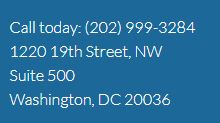The attorney-client dynamic is fascinating and complex. It is important that a client have complete trust and confidence in counsel, but when that appears to break down, replacing counsel is not always the best choice. Engaging new counsel and getting them up to speed can be duplicative and expensive and, therefore, is best considered only after careful reflection. Ask yourself the following questions if you are looking to “switch horses”:
Is your attorney too busy?
When you are suddenly involved in a life crisis and hire a lawyer, you are consumed by your problem and getting to the potential solution as soon as possible. You seek legal counsel to get you out of a mess, so to speak. If you have chosen counsel well, you have selected an intelligent and zealous advocate who is trained to protect you in your time of need.
However, that does not mean good legal counsel will share this crisis with you on a personal level. First, you want your personal injury lawyer Bangor ME to be objective and not caught up in the judgment-blurring emotional aspects of your case. Second, you want a lawyer who has worked through your situation in other cases and is not shocked by your crisis. Third, if your attorney is busy, perhaps that is a sign that he or she is in demand due to good reputation. This is an important consideration. It can be frustrating when a professional does not personally pick up the phone on the first ring, but wouldn’t that be a bad sign?
Never returning phone calls is very poor practice for a lawyer. On the other hand, it would be rash to expect too much. Good lawyers are busy lawyers and they generally know what needs tending when.
Is your attorney giving you bad news?
It is distressing for any professional to give bad news to a client. I have seen some blind optimism from my clients, but more often than not it is the complexity of the law that fosters unrealistic expectations. Untangling those complexities is what a lawyer does, but that process often foretells a potential unfortunate outcome. Less than optimal news from counsel may be the objective, realistic perspective necessary to avoid the worst outcomes and can lead to unexpected positive results.
Done well, lawyering is a surprisingly creative process. A non-lawyer might scoff at that notion and I have had some clients who could not appreciate some of my best work because of the complexities involved. Minimizing the effects of bad news is at least half of what lawyers do. If you are looking for a “yes man” in hiring a lawyer, expect to pay more and get less
Is your attorney raising ethical prohibitions in his counsel?
This is a little difficult for clients, sometimes. Lawyers’ ethical rules are designed to ensure that the attorney-client trust relationship is not violated and that all lawyers, not just yours, practice law fairly and by the same rules. If your attorney ignores ethical rules, then one might wonder if that lawyer is going to treat you fairly. If the ethical rules arise in your consultation, acknowledge to yourself that the lawyer respects his profession and, therefore, respects his or her clients.
In closing, when another lawyer’s client comes to me seeking to replace counsel, I go into depth on where the potential client’s dissatisfaction lies. Often, it can be resolved and the client returns to original counsel.
Thanks to our friends and contributors from David Bate Law Office for their insight into retaining an attorney.


